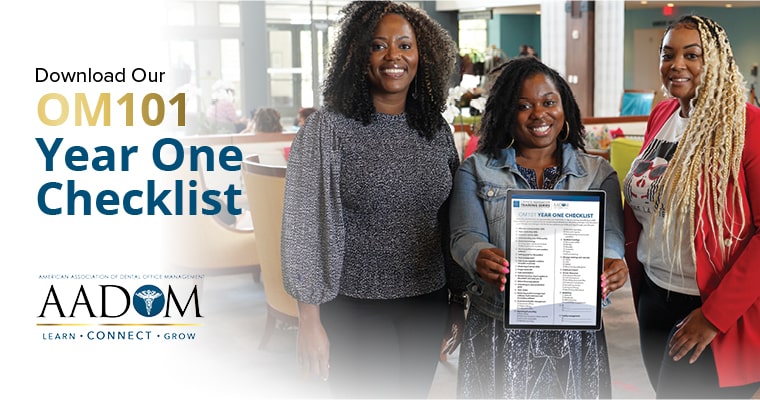The Most Important Question to Ask New Patients During The First Phone Call
In 2006, I spent weeks of my teenage life daydreaming about a particular girl, Sandy Peppercorn (her name has been changed for privacy’s sake). I finally decided I would ask her to prom. Inspired by popular rom-coms, I wrote her a song and performed it in front of her (and the lucky students passing by in the hall). I spent hours crafting the song and the lyrics and even employed some friends to help in the performance. Then on one fateful day after 7th period, I got my shot.
She said yes. Now what?
Surprisingly, I realized I hadn’t planned what to do/say next. So, what followed was a very awkward long pause followed by a very uncharismatic “cool,” then I shook her hand (you read that right, I shook her hand) and ran off.
So how does this relate to new patient phone calls? Glad you asked. Dental offices expend immense effort and money marketing to new patients. However, the same amount of energy often isn’t applied to strategizing what happens next. What do we need to do when a new patient responds or when they reach out? Typically, the initial outreach is by phone. So, how do we turn this new person on the other line into a new and soon-to-be loyal patient?
You may lose that potential new customer if you don’t have a strategic game plan. After all, I didn’t end up marrying Brittney Pend…I mean Sandy Peppercorn. Coincidence, I think not.
To better understand the new patient protocol, we sat down with Deborah Engelhart Nash, consultant…Click to learn more in a new tab…, trainer, author, and overall Dental Office Guru. She talked about the importance of the new patient phone call and what she considers the most essential tips to employ on those phone calls.
Tip 1 – Slow Down
Debra’s first tip is to slow down. While it is common for offices to want to get right to the important administrative information, it is crucial to first show the patient that you care about them. You can simply say, “May I ask you a few questions?” Debra continues, “That’s always number one before we launch into the, ‘What is your name, social security number, what is your medical history? Do you have to be premedicated?’ So always ask permission before you start asking questions.”
This can be prefaced with phrases like, “So I can schedule this appointment for you …” or “So I can ensure that we meet your expectations today …”
For new patients, the initial phone call starts the relationship. They need to feel valued. The phone is such a valuable marketing tool for establishing initial expectations.
Key Question – What Inspired you to call today?
This leads to Debra’s next question – and the most important to ask – what inspired you to call today? Debra explains, “The patient who calls you today wants to make a difference in their dental life, and you need to find out what that is and how you can serve them well.”
When you know the nature of their call, you can have a more personal conversation. You are no longer simply scheduling a new appointment; you are learning about what motivated the patient and helping provide pivotal information for the team when interacting with them for the first time. This also gives the patient a chance to tell you more about them, not the administrative data, but about their motivations, expectations, the real purpose for reaching out.
Debra warns that at this point of the conversation, it is common for offices to start giving the ‘office expectations’ spiel. “We tend to tell the patient what we expect from them. We talk about the behavior we expect them to model. How we want them to bring in their appointment card or arrive early enough to fill out the paperwork … we sort of give them rules and regulations of being a patient. We tell them what we expect from them.”
Setting The Right Expectations
While it is important to set office expectations, offices often miss a valuable opportunity to utilize the power of the phone in establishing and aligning patient expectations. “Rather than telling your patients what you expect from them, let them know what they can expect from you. The telephone is a marketing tool to let your patients know what you will do for them, how you will help them, and how you are different from other dental offices.”
In your marketing messages, you often preach about how your practice is patient-centric, how you are different from other practices. The new patient phone call is a way to validate those messages and showcase how your office puts patients first. Debra summarizes by saying, “When your telephone protocols are different, and they are exceptional from another standard call, your patients will realize that you’re a different practice. And they’re going to learn to expect greatness from you and be excited to make that appointment.”
Utilize Technology
So much time and effort is put into marketing to new patients, it is important to implement strategic processes and critical systems to help capture every call. That’s where Weave comes in. Weave is a remote business management and communications software that offers the necessary tools to operate your company. One office, Greater Pittsburgh Dental Implants, and Periodontics, spent a lot of money and time on marketing to patients but was frustrated when leads weren’t coming in. Turns out that the leads were coming in, but many of them were being missed. After implementing Weave, they had access to better call analytics and missed-call text…click to learn more in a new tab…. Weave ultimately helped this office go from a missed call rate of 35% of calls a month to 6%…click to learn more in a new tab. allowing them to capture more new patients. Read the full story here…click to learn more in a new tab….
Schedule a no-obligation product walk-through to learn about Weave and why Debra Nas trusts this technology tool to help her engage with patients.
Schedule a product walk-through…click to learn more in a new tab …







